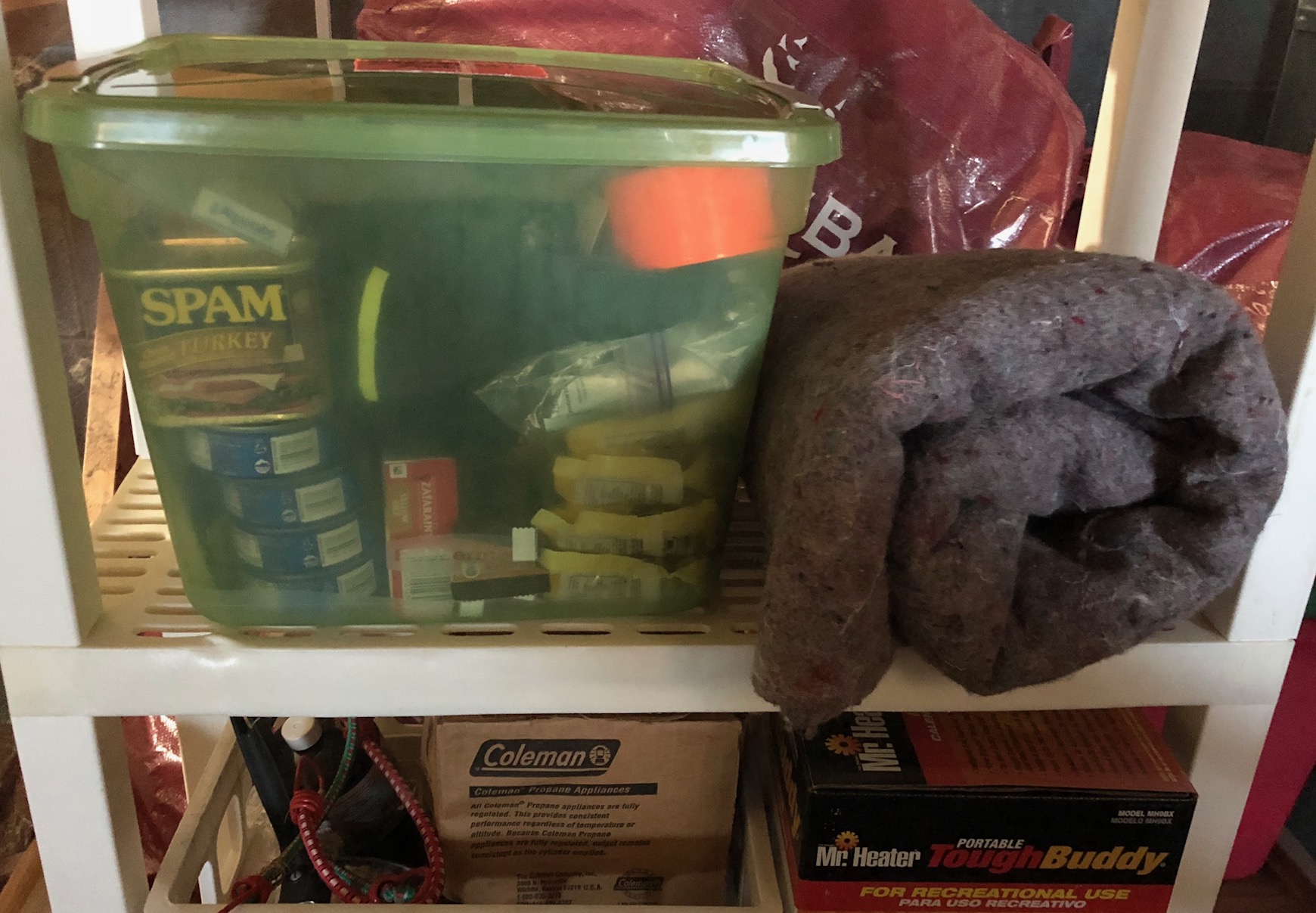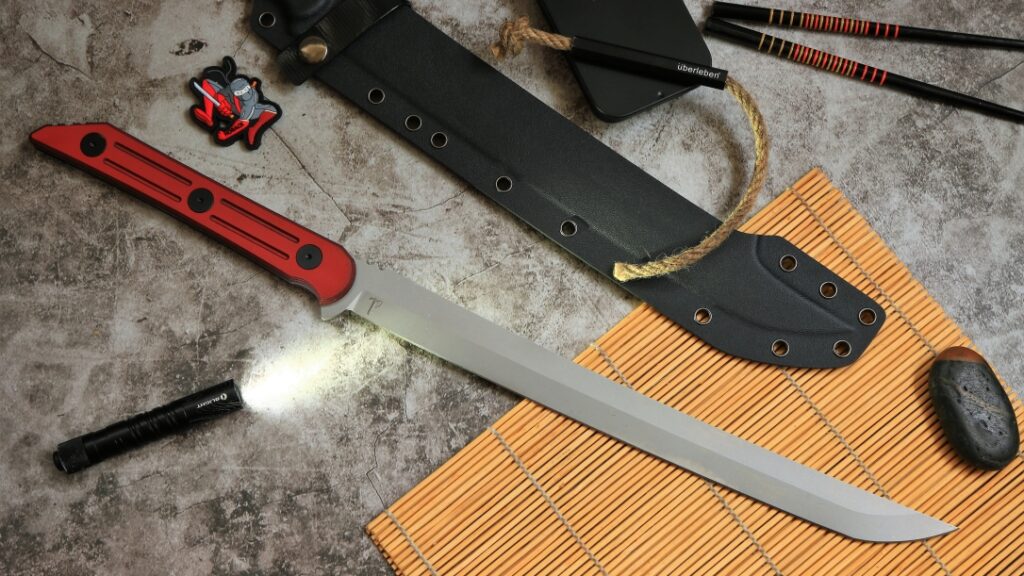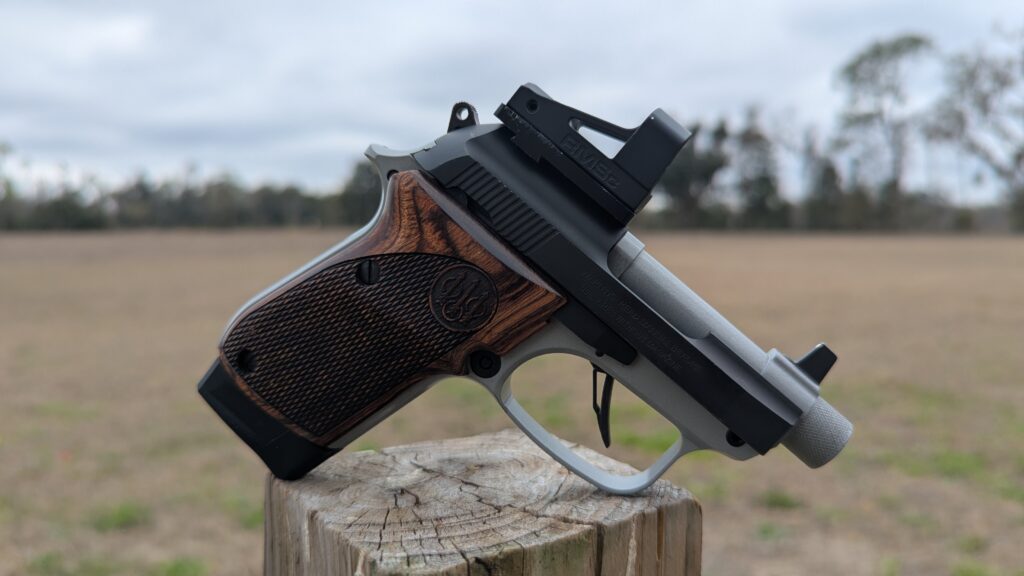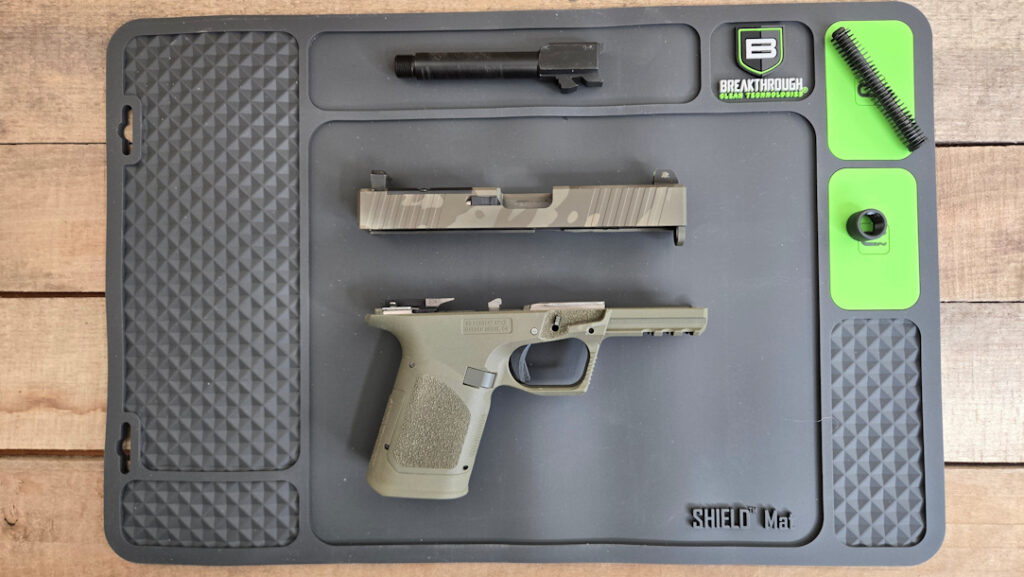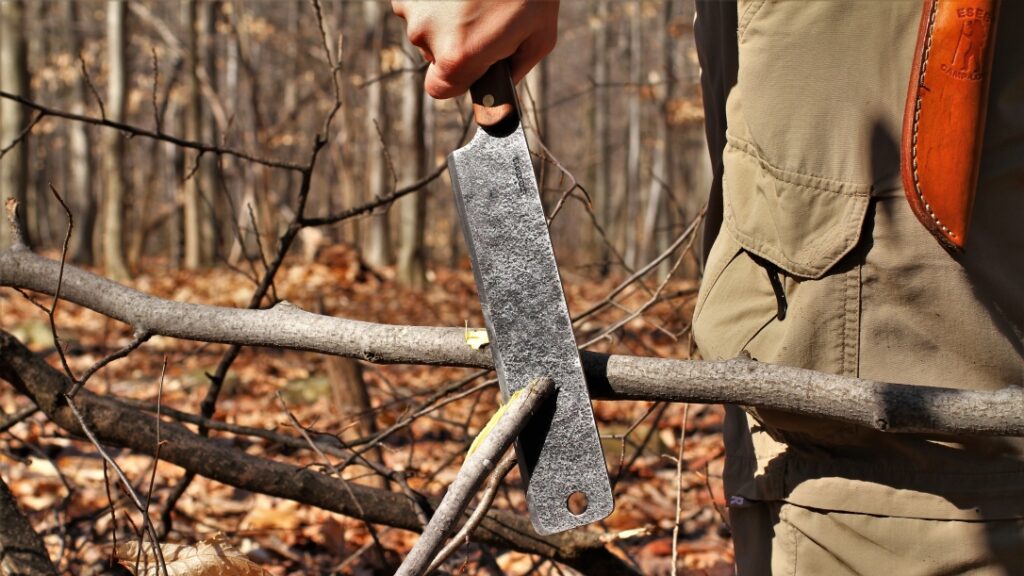I’m not actually a “prepper” per se. Neither am I the “operator” sort. But living alone and being an empty-nester, I do recognize the importance of being as self-sufficient as possible when it comes to the unexpected. If a disastrous weather event strikes – taking out power and water, or interrupting my ability to get to the grocery store – I want to be able to handle things myself for at least a week of “sheltering in place”. Thus, I have a small stash of supplies, including non-perishable food like canned meats and vegetables, ramen, flavored rice packets, etc. Not to mention lots of spare ammo.
Some people rely on “bug-out bags”, and though I do have a small pack organized, I doubt that 50-something out-of-shape me would get very far on foot. Thus, most of my emergency plan involves staying home and making the best of it for as long as possible. Those of us who are only old-time Girl Scouts, and who did not go through SERE training need to think a little harder about what we are capable of, and what our needs really are. If you have not already done this kind of planning, here are a few places to start.
https://www.cdc.gov/phpr/areyouprepared/index.htm
Advertisement — Continue Reading Below
http://www.redcross.org/get-help/prepare-for-emergencies/be-red-cross-ready/get-a-kit
https://www.ready.gov/make-a-plan
https://www.nfpa.org/Public-Education/By-topic/Emergency-Preparedness
Advertisement — Continue Reading Below
Assuming that you already have a plan and supplies in place, early spring is a good time to go through your emergency stash of food and decide what needs to be replaced. In early spring the worst of the winter storms are over, and it’s not tornado or hurricane season yet, so you have a little time to evaluate your stock. Though packaged food is often good for long after the printed out-date, it does tend to lose flavor or have a change in texture. Periodically going through your stash gives you an opportunity to rotate the stock and keep things fresher.
On your next summer camping trip you can then use-up whatever stock you have culled. You will be replicating conditions that you might experience during an emergency anyway – boiling water and cooking on a camp stove or fire – so it would be a good test of what you have planned for your emergency food. It will also be a good test of palatability after long storage. This is all assuming of course that you are using regular family-type grocery supplies and haven’t just stashed a case of MREs in your basement that are good for ten years or more. MREs store well, but they are also expensive.
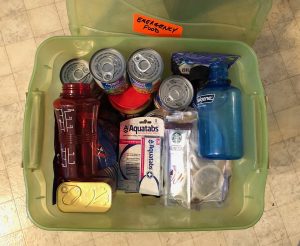
You don’t even have to actually go camping to do all this. It is possible to “field test” your supplies in your backyard on a weekend, or even on the balcony of your apartment. All it takes is a little imagination. Pick a weekend and mark it on the calendar as “rough-it weekend”. Tape down the light switches to remind you not to use electricity. Tie plastic grocery bags over the faucets to remind you that you can only use bottled water or what you have saved in a tarp-lined bathtub. Cook your meals in a skillet on the propane or charcoal grill. Make coffee without your Kuerig. Take sponge baths for the weekend. Use only the gray water from washing the dishes or your sponge bath to flush the toilet. Keep a bucket in the bathroom to store the gray water.
Advertisement — Continue Reading Below
Those of you who like role-playing games might even come up with scenarios to challenge each other in substitute for a usual Friday night table-top RPG.
You see before you three food items, a candle, an empty can, a spork, and a pocket knife. You must prepare enough food to give your party energy for the looming fight. You have one hour before the Orcs arrive. You may also use whatever your party has in their pockets at this moment.
Or you could have the players roll various dice to see what supplies they are allowed to have and let them figure it out from there. Whatever it takes to have a fun test of your gear and mad skillz.
Advertisement — Continue Reading Below
I’ve actually done some of these things already anyway, but it never hurts to keep one’s skills up-to-date. When I was a Girl Scout back in the Stone Age I had to start a fire from scratch with only two strike-anywhere matches. The family hunting cabin (built in 1946 and now nearly uninhabitable) has an outhouse and no running water. We haul drinking water from home, and for washing-up we use water out of the creek, which has been boiled on the wood stove. Bathing out of a basin with only a quart or two of water is a good lesson in which body parts need to be washed first, and which ones last! I have even used a kitty litter bucket for a camping commode. But it’s up to you how far you want to go for the sake of “practice”. (Or how far you can convince your spouse and children to go.)
While you are in the midst of your rough-it weekend, check that the tools in your stash actually do what they are supposed to do.
-Can you really make that flint and steel work to start a fire? Or is it a 2-hour struggle? (This is where having a balcony grill would be helpful if you are an apartment dweller.)
-Does the can opener on your pocket knife actually open a can? Or does it open your finger instead?
Advertisement — Continue Reading Below
-Do you have a med kit suitable for taking care of that opened finger?
-Are your flashlight batteries and phone charger sufficient for the entire weekend?
-Is your emergency spork comfortable to eat with? Or is the “bowl” too small for soup, and the tines too dull to stab any meat?
Advertisement — Continue Reading Below
-Did you remember board games, cards, and books to keep the kids (and yourself) occupied?
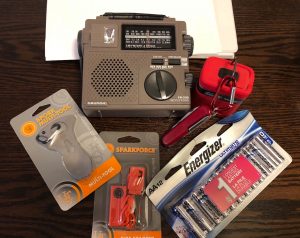
These are all things that would be good to shake out at home on a weekend, BEFORE an emergency strikes. You don’t want to discover in the midst of the snowpocalypse that you have a tool that doesn’t actually work, or discover that your food stash is inedible.
With a little planning the experience can even be fun. Try to make it a family (or group of roommates) adventure. Take notes as you go along, because you’ll want to remember what items it would have been nice to have (or turned out to be essentials that you hadn’t even thought about). Then when the adventure is over you can take advantage of the summer sales to replace your stock and shop for whatever else you discovered would help you be better prepared the next time.
Advertisement — Continue Reading Below
